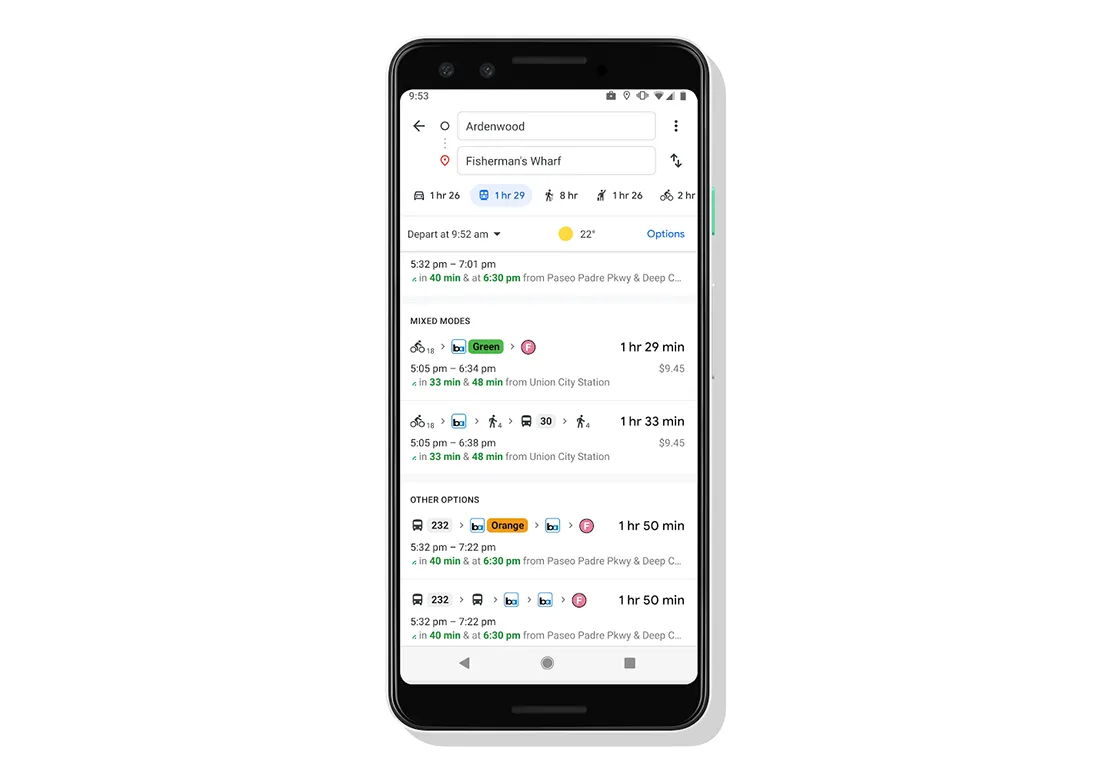With space increasingly at a premium in today’s cities, high quality public transport combined with a broader mix of mobility services is the answer to cutting car dependency, according to the latest publication from the International Association of Public Transport (UITP).
The document, ‘Public transport at the heart of the integrated mobility solution,’ claims that the key to cutting urban car dependency is an integrated combination of sustainable mobility services. Cities with strong public transport
April 19, 2016
Read time: 2 mins
With space increasingly at a premium in today’s cities, high quality public transport combined with a broader mix of mobility services is the answer to cutting car dependency, according to the latest publication from the International Association of Public Transport (UITP).
The document, ‘Public transport at the heart of the integrated mobility solution,’ claims that the key to cutting urban car dependency is an integrated combination of sustainable mobility services. Cities with strong public transport, complemented with services such as car- and bike-sharing, shared taxi services and ride-sharing offer citizens convenient and flexible travel options.
The paper says urban space is at a premium: private cars are parked 95 per cent of their lifetime and during the five per cent of the time they are driven, are much less space-efficient compared to public transport, walking and cycling. With increasing urbanisation, mobility demand will continue to rise: public transport, particularly on major corridors and in peak hours, will remain the only viable solution for cities.
Although new mobility services such as ride selling apps (Uber, Lyft), free-floating car-sharing (car2go) or ridesharing apps (Blablacar) play a valuable role in helping to reduce car ownership, UITP says that alone they do not have the capacity or capability to meet every journey need or solve congestion issues.
These services thus depend on efficient public transport in order to function well. In Paris, 65 per cent of Uber trips start or end within 200m of a metro station. In Berlin, free-floating car-sharing is well-developed but still represents just 0.1 per cent of total trips. This is precisely the point, though: car usage decreases because car-sharing users walk, cycle and use public transport for the majority of their trips and use a car only when necessary.
“Public transport accounts for 1.2 billion trips across the globe each day,” said Alain Flausch, UITP secretary general. “It is this vital backbone role that it plays – in combination with new mobility services - that will ultimately offer more flexible and convenient travel options that will help our cities to become less car-dependent”.
The document, ‘Public transport at the heart of the integrated mobility solution,’ claims that the key to cutting urban car dependency is an integrated combination of sustainable mobility services. Cities with strong public transport, complemented with services such as car- and bike-sharing, shared taxi services and ride-sharing offer citizens convenient and flexible travel options.
The paper says urban space is at a premium: private cars are parked 95 per cent of their lifetime and during the five per cent of the time they are driven, are much less space-efficient compared to public transport, walking and cycling. With increasing urbanisation, mobility demand will continue to rise: public transport, particularly on major corridors and in peak hours, will remain the only viable solution for cities.
Although new mobility services such as ride selling apps (Uber, Lyft), free-floating car-sharing (car2go) or ridesharing apps (Blablacar) play a valuable role in helping to reduce car ownership, UITP says that alone they do not have the capacity or capability to meet every journey need or solve congestion issues.
These services thus depend on efficient public transport in order to function well. In Paris, 65 per cent of Uber trips start or end within 200m of a metro station. In Berlin, free-floating car-sharing is well-developed but still represents just 0.1 per cent of total trips. This is precisely the point, though: car usage decreases because car-sharing users walk, cycle and use public transport for the majority of their trips and use a car only when necessary.
“Public transport accounts for 1.2 billion trips across the globe each day,” said Alain Flausch, UITP secretary general. “It is this vital backbone role that it plays – in combination with new mobility services - that will ultimately offer more flexible and convenient travel options that will help our cities to become less car-dependent”.









